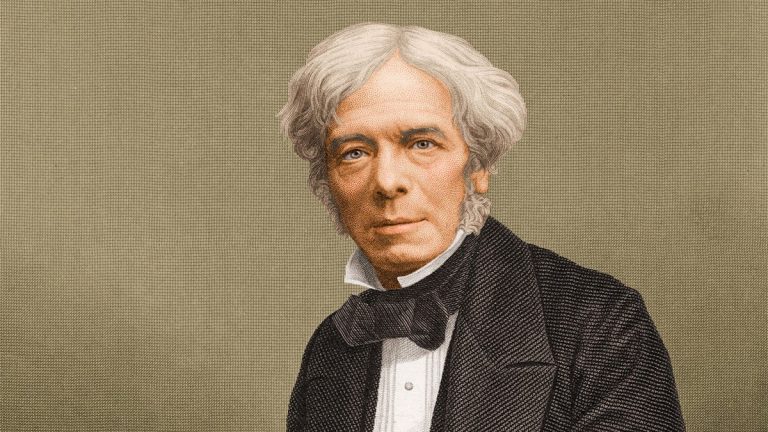Date of Birth: September 22, 1791
Zodiac Sign: Virgo
Date of Death: August 25, 1867
Biography
Michael Faraday was an eminent British scientist born on September 22, 1791, in Newington Butts, now part of South London. Faraday’s work in the fields of electromagnetism and electrochemistry laid the foundation for many modern technologies. Despite having little formal education, Faraday’s insatiable curiosity and dedication to science led him to become one of the most influential scientists in history. Faraday began his career as a bookbinder’s apprentice, where he developed a keen interest in science by reading the books he was binding. His break came when he attended lectures by the renowned chemist Humphry Davy. Impressed by Faraday’s enthusiasm and self-taught knowledge, Davy employed him as a laboratory assistant at the Royal Institution. Faraday’s most significant contributions include the discovery of electromagnetic induction, diamagnetism, and electrolysis. He invented the first electric motor and dynamo, which were critical in the development of electrical engineering. Faraday’s experiments with electromagnetic fields and his concept of lines of force paved the way for James Clerk Maxwell’s later work on electromagnetic theory. Faraday was a deeply religious man, and his faith influenced his scientific work. He was known for his humility and dedication to public service, often giving lectures to young people and the general public to make science accessible. Faraday’s health began to decline in the late 1840s, and he gradually reduced his scientific work. He passed away on August 25, 1867, at Hampton Court, Surrey, leaving behind a legacy that continues to inspire scientists and engineers to this day.
5 Interesting Facts about Michael Faraday
1. Michael Faraday discovered electromagnetic induction in 1831, which is the principle behind the electric transformer and generator.
2. Faraday rejected a knighthood and twice refused to become President of the Royal Society, valuing his independence and personal beliefs over titles and accolades.
3. Faraday’s work on the chemical process of electrolysis led to the establishment of laws of electrolysis, now known as Faraday’s laws of electrolysis.
4. He was a devout member of the Sandemanian church, a Christian sect that influenced his personal and professional life.
5. Faraday was largely self-taught, having received only basic education before starting his scientific career.
5 Most Interesting Quotes from Michael Faraday
1. “Nothing is too wonderful to be true if it be consistent with the laws of nature.”
2. “The important thing is to know how to take all things quietly.”
3. “Work. Finish. Publish.”
4. “Speculations? I have none. I am resting on certainties.”
5. “The lecturer should give the audience full reason to believe that all his powers have been exerted for their pleasure and instruction.”
Highest Net Worth Achieved
Michael Faraday did not amass significant personal wealth from his scientific work. The concept of net worth as applied to modern celebrities or businesspeople does not directly apply to him. He lived modestly and was more concerned with his scientific pursuits and public service than with financial gain.
Children
Michael Faraday and his wife, Sarah Barnard, did not have any children. He was devoted to his family and his scientific work, and his marriage was a supportive and loving partnership.
Relevant Links
1. [Biography of Michael Faraday on Britannica](https://www.britannica.com/biography/Michael-Faraday
2. [Michael Faraday on Royal Institution](https://www.rigb.org/our-history/people/f/michael-faraday
3. [Michael Faraday on Famous Scientists](https://www.famousscientists.org/michael-faraday/


